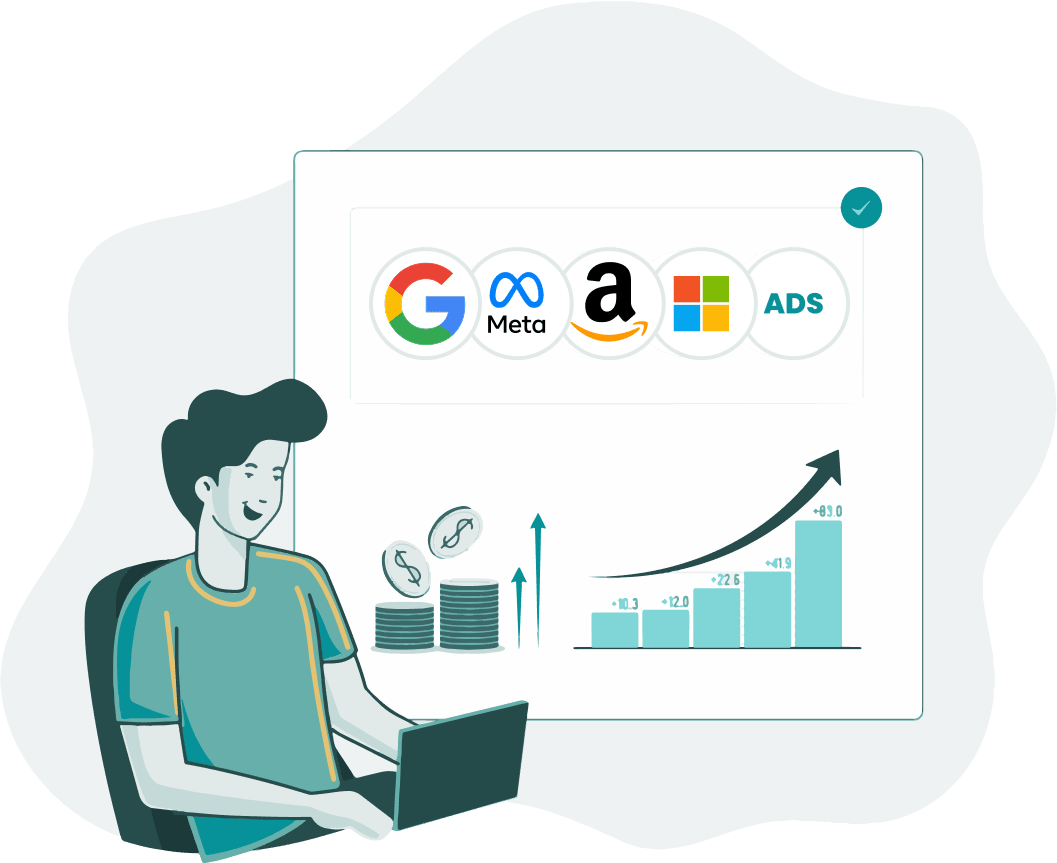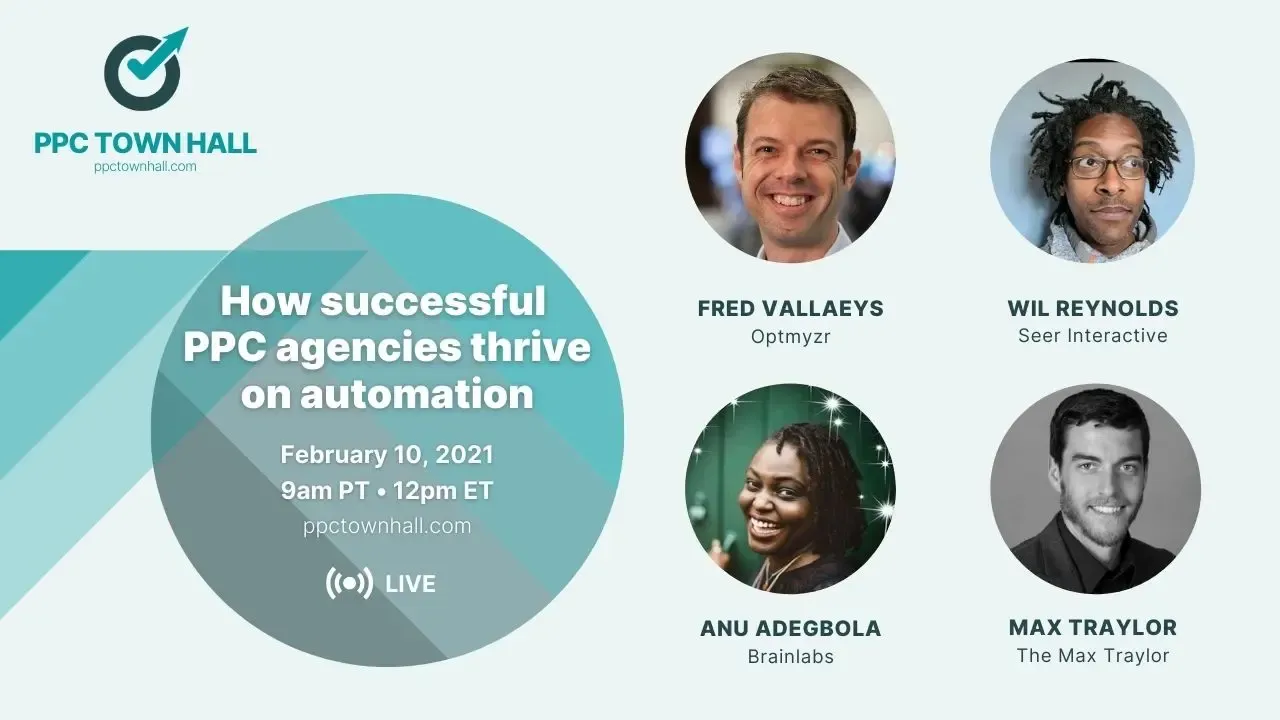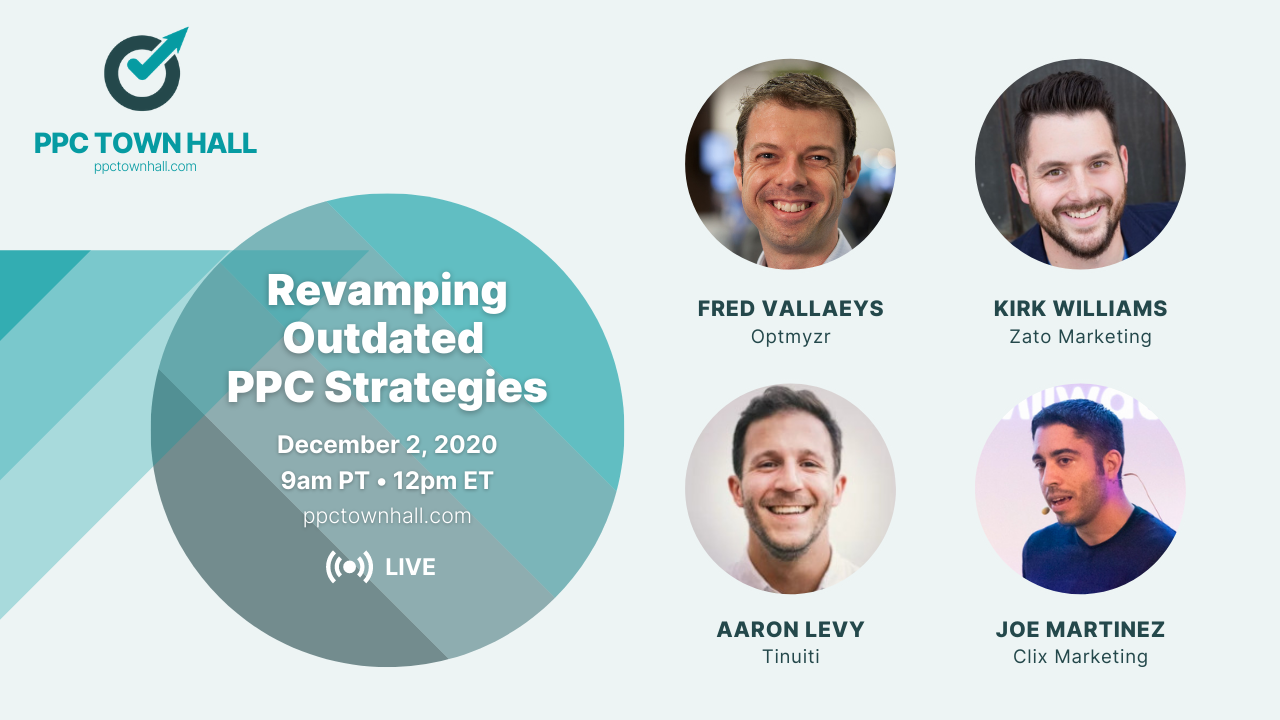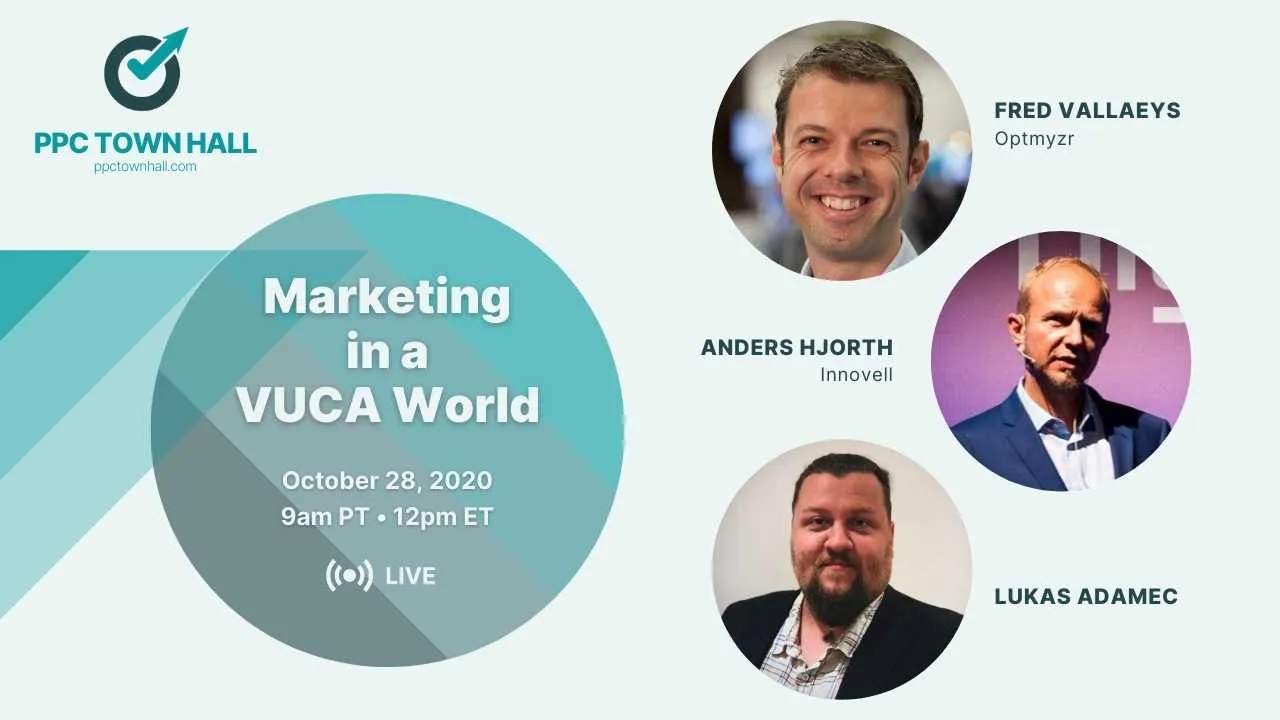It’s 2021, and whether you’re a marketer or an agency, you would be preparing for yet another thrilling year of PPC. Right from the start, you need to be aware of the newest trends and features in paid marketing to leverage your PPC game. And that means you need to know of any curveballs that might come your way. In 2020, we saw experts deep-diving into topics like automation, privacy issues, and keywords, which we might be discussing more of the same this year as well.
To get a better perspective of what to expect in the coming months, we invited over some of the smartest minds of PPC and asked for their insights. Our panelists this week are some of your favorite experts from conferences like SMX, shedding light on what they expect from PPC in 2021.
- Brad Geddes, Adalysis
- Ginny Marvin, Independent Consultant
- Matt Van Wagner, Find Me Faster
As always, you can view this week’s episode as well as previous editions of PPC Town Hall right here.
Here are 5 insights on what to expect from PPC in 2021.
1. RSAs vs ETAs
Brad: According to our data, we’ve seen more people trying out RSAs than Optmyzr users. We also see that a lot of people who still have them, have shrunk their usage. I’ve done a little bit of segmentation (since we did our session at SMX) on spending and account size versus declining RSA usage. And it’s definitely the smaller accounts that have declined their usage much less than the larger ones. We have seen that those who spend half a million to a million, plus have decreased usage more than those who spent 10-20 thousand dollars a month.
For a lot of these people, it’s more about results than getting that control. They don’t care if you’re a lead gen company. You may spend 10 million a month but in the end, you care about results.
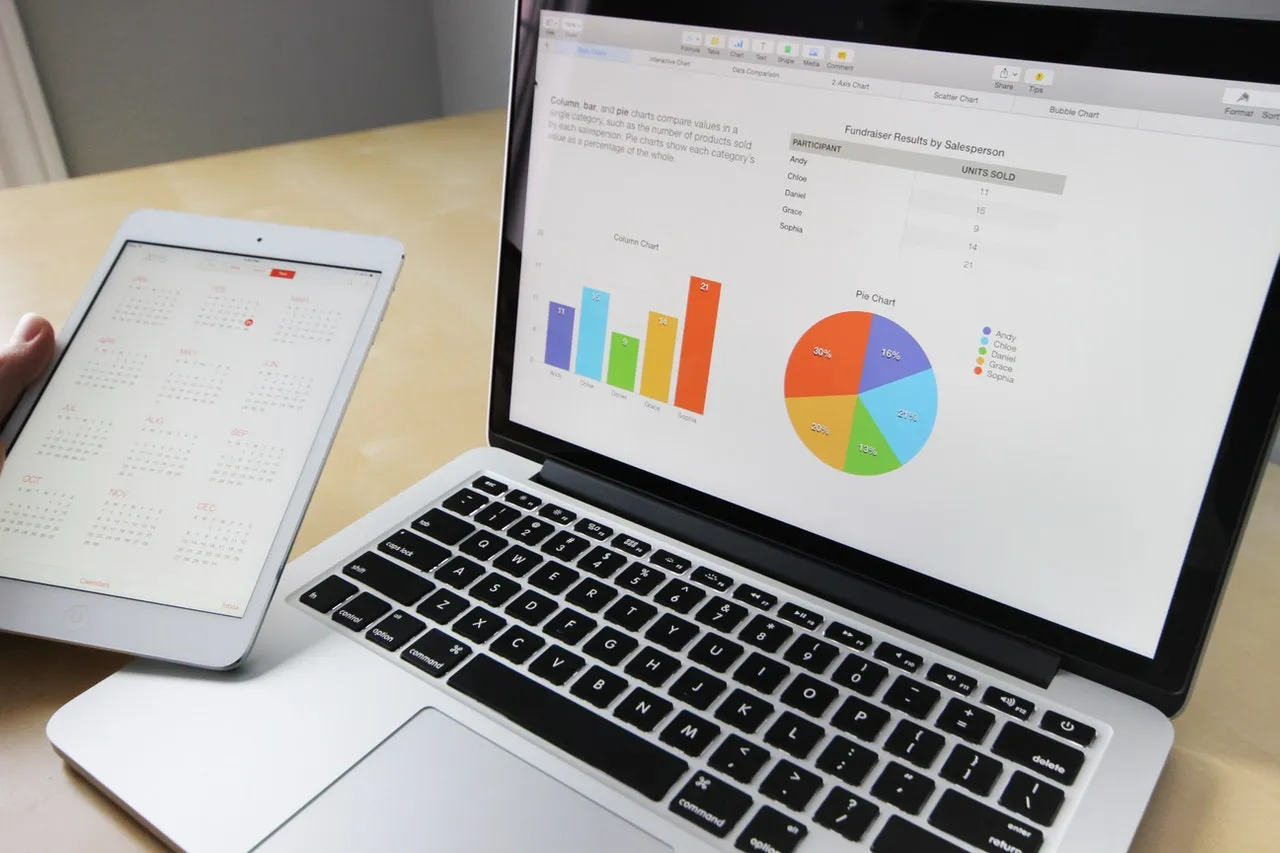
Ginny: My question on it comes back to what are ‘results’? If we’re strictly looking at conversion rate or cost per conversion, then I can see where ETAs are often going to win. I’m wondering if advertisers might be looking at RSAs to open themselves up for more impression inventory. So is that a factor where people are considering more exposure than focusing on conversion rate?
Matt: In a lot of cases, you actually don’t have enough data for RSA to really even get their wheels spinning. It’s a multivariate type of testing and so often times we see that decisions are being made too quickly on winners and losers.
2. Identifying your business signals
Ginny: Having your own business signals mixed in with data you provide to the machine is becoming really critical now. This is where the real leverage can come, particularly the competitive leverage over your competitive sets. In order for people and businesses to identify their own business signals, they need to do some real analysis and investment, which takes a lot of digging. And then being able to present this in a way that can actually be used.
So the real question is, do advertisers keep pushing businesses to give more inputs even when some might want to keep that data to themselves rather than sharing it with Google? If yes, can we anonymize it and ensure that those inputs work within the algorithms.
3. Giving Google the right data and goals
Matt: Instead of fighting Google, let’s focus on giving them the right goals. One of our focuses will be feeding the data to the machine. And I think we’re actually going back to really seminal work in the whole web UX and web design area. If you look at Google Analytics, it’s moving away from discrete real things to events and connections that sort of represent proxies like scroll time or time on page. What I’d like to see is combinatorial data that would allow us to combine scroll depth and time on page, multimodally. How do we build up signals from the site we’ve got and trigger events that we can feed back to our bidding?
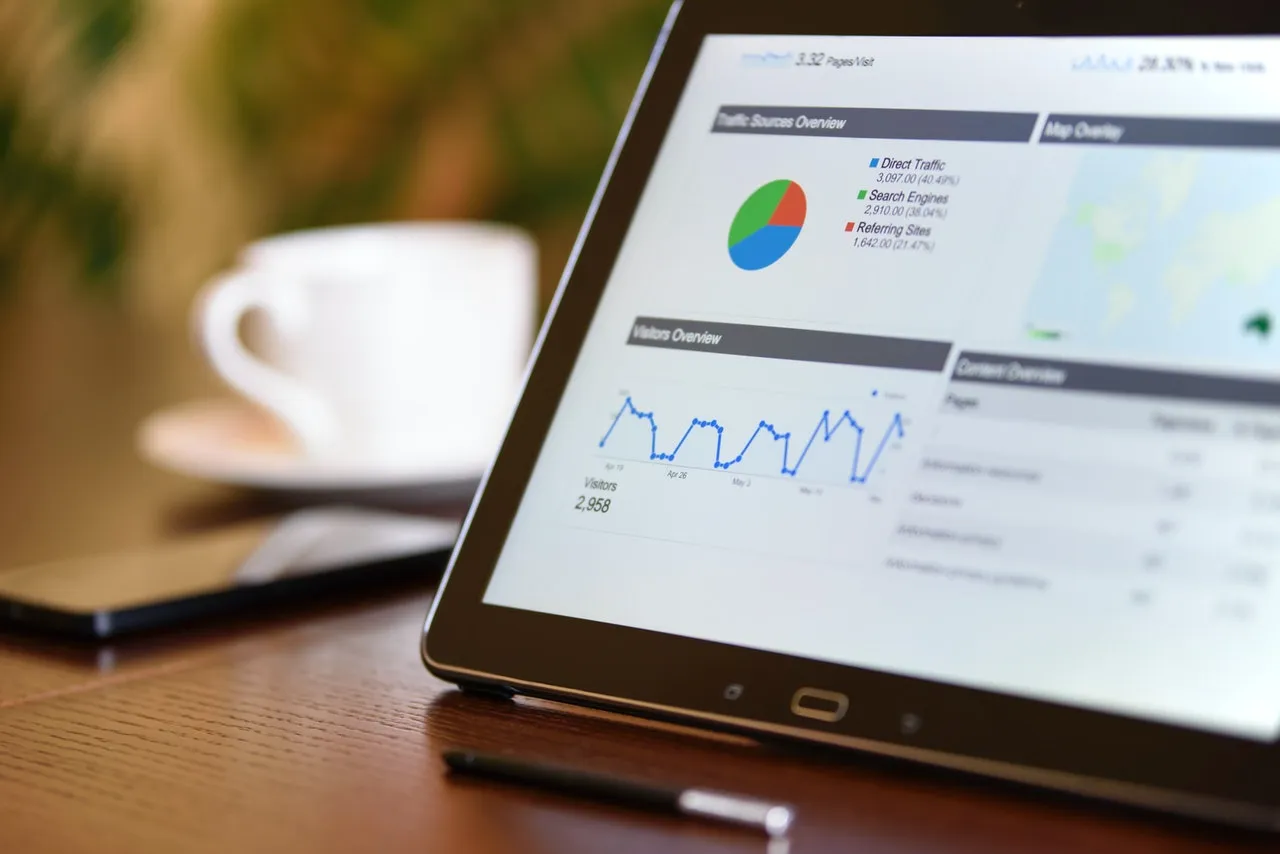
Our goal this year is to take a look at how we can understand what behaviors on the site represent good proxies to the next sort of actions. We also want to give those signals a little bit more attention, feed them, and try to develop audiences out of them.
4. Importance of setting up clean conversion
Brad: This is more important now than in the past because with all the privacy things happening, you doing your own data or attribution modeling is going to be essential. Even from a basic standpoint of modeling, you need to get it right because the privacy changes are going to mess up the data inside some of your platforms. Just to do some basic analysis, you actually need to have it yourself now and can’t rely on the platforms to give it to you because they’re not gonna have all the data they had previously.
5. 2021 Predictions
Brad: I will argue that as soon as Google removes keywords, their revenues decline significantly. Out of every advertising method out there, the intent of a search for someone saying ‘I want this’ is the strongest signal in advertising. It’s better than any programmatic, any audience or any other advertising methods. If people don’t get to use keywords for targeting, they might think of going programmatic.

Matt: I think that while Google may never take away keywords, they’ll definitely stop paying attention to what we’re actually telling them with our match-types. And I think that if you look at the loss of search query data may be Google feeding its AI and learning on all of our dimes! And they’re saying we don’t care what we [advertisers] know, they’re going to let their machines run wild, and decide for themselves what’s working or not!
Ginny: We still have some agency in all of this. I think we need to start using the machines in ways that they were meant to help us. And while they aren’t going to get it right all the time, we should be present to guide it. This is where your own data is going to be helpful. If you come in with a campaign that has been a disaster, all that data is not useful. For example, if you’ve set your campaign on broad match and end up reaching attorneys in Palm Beach when you actually run a hair salon, that data is useless. All of this can be avoided if you educate yourself and be an invested marketer. So much about this year is still going to be based on fundamentals.
Conclusion
Let’s face it - doing PPC in any year is tricky.
What with Google introducing changes, paid marketers need to leverage on every new trend that comes their way. Working along with the machine, feeding it good usable data, and relying on automation to boost your business goals might go a long way for PPC pros in 2021. To set yourselves apart from your competitors, consistently optimize your campaigns, utilize new tools, and look to expert strategies by industry leaders to pave your way to success.





